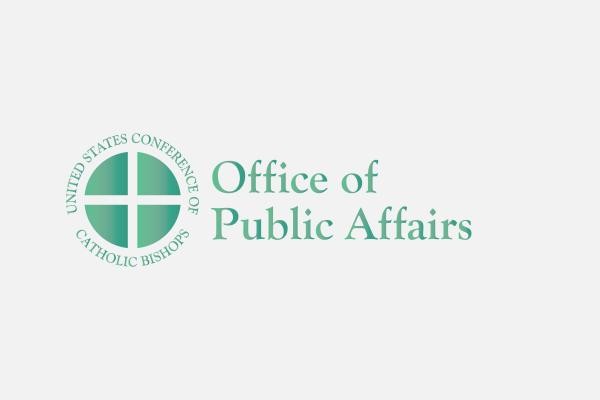Orthodox Jewish-Catholic Consultation Looks at Faith in Public Life in Election Season
WASHINGTON—Ethical issues that arose in the recent presidential election drew the attention of the Orthodox Jewish-Catholic Consultation, October 27, in New York City. The priests and rabbis at the consultation noted that Jews and Christians share a sacred responsibility to protect and care for one'
WASHINGTON—Ethical issues that arose in the recent presidential election drew the attention of the Orthodox Jewish-Catholic Consultation, October 27, in New York City. The priests and rabbis at the consultation noted that Jews and Christians share a sacred responsibility to protect and care for one's neighbor. The consultation includes representatives of the Orthodox Union (OU), the Rabbinical Council of America and the United States Conference of Catholic Bishops (USCCB).
Co-chaired by Bishop William Murphy of Rockville Centre, New York, and Rabbi Fabian Schoenfeld of Young Israel Synagogue in Kew Gardens Hills, New York, the meeting addressed the challenges facing people of faith in a religiously pluralistic and democratic society. Presentations representing the Catholic and Orthodox Jewish perspectives highlighted the role of faith traditions in forming consciences that allow people to exercise responsible citizenship.
Society of the Atonement Father James Loughran commented on the 2008 USCCB statement "Faithful Citizenship." He noted that for the U.S. bishops social responsibility includes not only the avoidance of evil, but also the promotion of authentic human values. "Too often in our polity," he said, "Catholics are perceived as being against certain social evils like a abortion without recognizing the Church's enduring commitment to promote a culture of life in which all people's dignity is respected."
Rabbi Tzvi Hersh Weinreb, Executive Vice President of the Orthodox Union, took issue with how religion continues to be dismissed as an "opiate" by secularists in our society. He noted that in a keynote address at the 2008 Democratic National Convention's Faith in Action gathering, he had called for a mature religious perspective that enlivens the critical function in human reason and that seeks to inform rather than dominate public discussion. All religious people have a "sacred responsibility" to rid society of violence and "fashion a culture which is defined by loving kindness and by compassion," he said.
Participants also discussed how persons of faith engage the political process and often face choices of candidates for public office who do not line up 100 percent with the interests or values of their own faith community. Among the challenges, the group noted, was the need to be faithful to conscience and civically responsible, while also criticizing policies and politicians whose actions lack moral legitimacy.
Previous meetings of the USCCB-OU Consultation have addressed anti-religious bias in the media, Middle East peace initiatives, school choice and education tax credits, and the defense of marriage as the union on one man and one woman. According to a statement released earlier this year, Catholics and Orthodox Jews can say together that the efforts of courts and legislatures to broaden the definition of marriage to include same-sex unions is harmful to both family life and the common good of society.
Jewish Participants in the consultation included Rabbi Schonfeld, Rabbi Weinreb, Rabbi Joseph Karasick, Rabbi Basil Herring, Rabbi Leon Feldman, Betty Ehrenberg, Nathan J. Diamen, David Berger, Ph.D, Howie Beigelman (staff), Moshe Sokolow, Ph.D, and Mark Weitzman.
Catholic Participants included Bishop Murphy, Bishop Frank J. Caggiano, auxiliary bishop of Brooklyn, New York; Msgr. Robert Stern, Christian Brother David Carroll, Msgr. Donald Beckman, Father Robert Aufieri, Father Lawrence Frizzel and Father Dennis McManus (staff), Jesuit Father Drew Christiansen, Msgr. Guy Massie, and Father Loughran.


